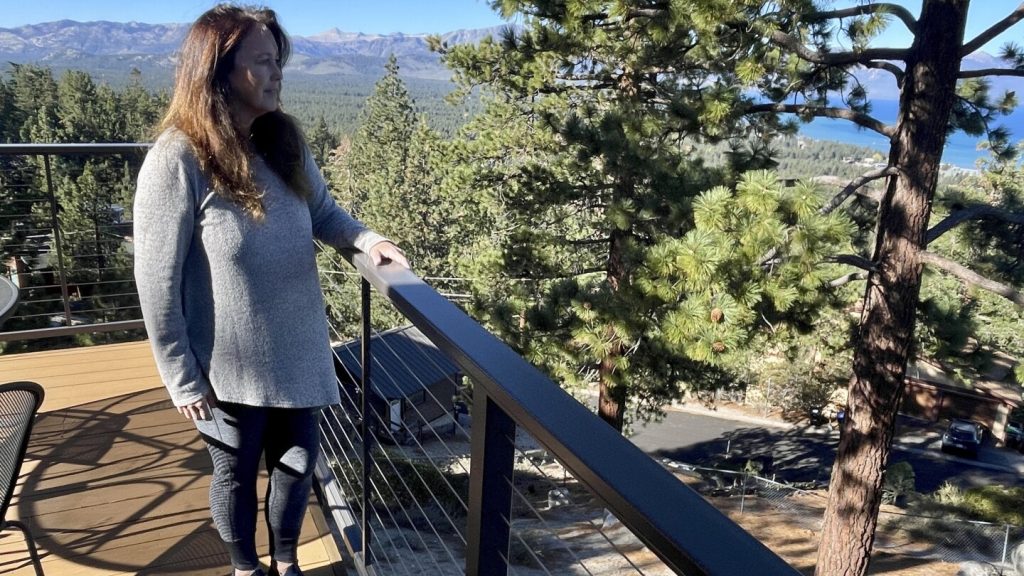The town of South Lake Tahoe in California is facing a significant decision on whether to implement a tax on vacation homes that are left vacant for a certain amount of time each year. Measure N, on the ballot for Tuesday’s election, aims to address the issue of affordable housing in the area, as approximately 44% of the city’s housing units are vacant. The proposed tax would levy $3,000 on homes that are empty for 182 days within a calendar year, with a subsequent increase to $6,000 for each subsequent year. Critics argue that these vacant homes are contributing to the housing crisis by limiting available rental properties, especially in expensive resort towns like South Lake Tahoe.
Supporters of the measure believe that it is necessary to encourage homeowners to rent out their properties or contribute to a fund for housing, roads, and transportation projects. The town is experiencing a shortage of affordable housing, leading to families leaving as local businesses struggle to hire staff due to limited housing availability. Individuals like Kelly Bessem, who works multiple jobs to make ends meet and is currently sleeping in her car while trying to buy a home, highlight the challenges faced by residents in the area. However, some homeowners like Nancy Dunn oppose the measure, viewing it as unfair and a violation of property rights.
Various organizations, including the California Association of Realtors and the National Association of Realtors, have contributed funds to oppose the measure. While unusual in the United States, more towns and cities are considering implementing empty homes or vacant homes taxes to address workforce housing shortages. Examples from other regions, such as Vancouver, Canada, have shown success in generating revenue for affordable housing projects through similar taxes. South Lake Tahoe’s proposed tax is modeled after Berkeley and is projected to raise millions of dollars in revenue to address the affordable housing crisis in the area.
Experts suggest that vacancy taxes could be beneficial in smaller towns like South Lake Tahoe, where housing shortages are particularly acute. The proposed tax aims to discourage homeowners from leaving properties vacant for extended periods and instead encourage them to rent out to tenants or sell their properties. However, opponents argue that they should not be penalized for owning second homes and that the tax infringes on their property rights. The debate over Measure N has heightened tensions in the community, with both sides expressing strong opinions about the potential impact on property owners and the local housing market.
Property owners in South Lake Tahoe would be required to self-report their occupancy status each year under the proposed measure, with exceptions for homes undergoing renovation. To avoid the tax, owners could choose to sell or rent out their properties to tenants on a more permanent basis. Restrictions on short-term rentals, including rentals of fewer than 30 days, have also been implemented in the city. The decision on Measure N will have far-reaching implications for the town’s housing market and residents, as well as potential impacts on property rights and the local economy. The outcome of the election will determine whether South Lake Tahoe takes a significant step towards addressing its affordable housing crisis.


